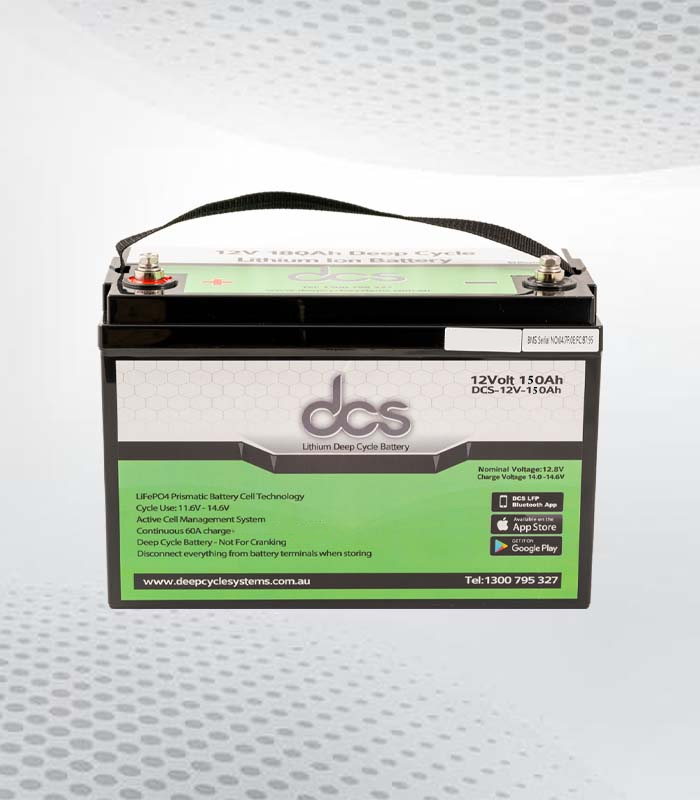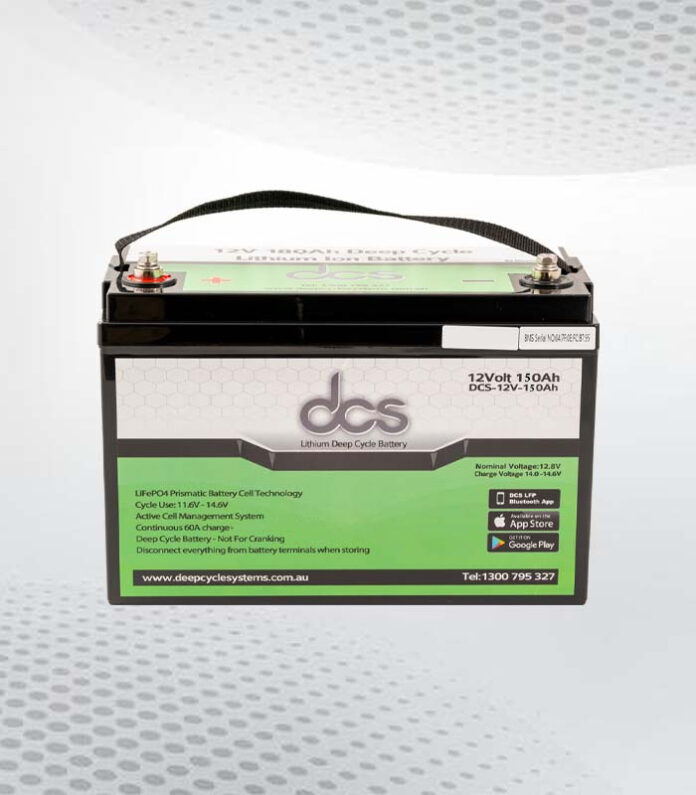When it comes to powering your off-grid adventures or sustaining your home’s solar energy system, having a reliable and efficient deep-cycle battery is crucial. Unlike traditional car batteries, deep-cycle batteries are specifically designed for long-term, deep-discharge applications. But with so many options available on the market, how do you know which one is the perfect fit for your needs? In this blog post, we will discuss the key factors to consider when choosing a deep cycle battery, so you can make an informed decision and find the perfect power source for your specific requirements.
Understanding Deep-Cycle Batteries: Their Importance and Role
Deep-cycle batteries play a crucial role in off-grid adventures and home solar energy systems. Unlike traditional car batteries, which are designed for short bursts of power, deep-cycle batteries are specifically designed for long-term, deep-discharge applications. They provide a reliable and efficient power source, making them essential for those seeking independence from the electrical grid.
The importance of deep-cycle batteries cannot be overstated. They are designed to withstand the rigorous demands of repeated deep discharges and recharges, allowing them to provide a consistent and stable power supply. Whether you’re powering appliances, tools, or recreational equipment, a deep-cycle battery ensures that you have the power you need when you need it.
In addition to their reliability, deep-cycle batteries also offer versatility. They can be used in a variety of applications, including off-grid cabins, boats, RVs, and backup power systems. Their ability to deliver sustained power over extended periods makes them an ideal choice for those who require reliable power in remote or isolated locations.
A Comprehensive Guide on Types of Deep-Cycle Batteries
When it comes to choosing the perfect deep-cycle battery, understanding the different types available is key. Here, we provide a comprehensive guide to help you make an informed decision.
- Flooded Lead-Acid Batteries: These are the most common type of deep-cycle batteries and are known for their affordability. However, they require regular maintenance and ventilation due to the liquid electrolyte inside.
- Gel Batteries: Gel batteries are maintenance-free and offer excellent resistance to shock and vibration. They are also known for their deep-cycling capabilities and longer lifespan.
- AGM Batteries: Absorbent Glass Mat (AGM) batteries are highly versatile and can be mounted in any position. They offer low internal resistance and high power density, making them suitable for a wide range of applications.
- Lithium-Ion Batteries: Lithium-ion batteries are lightweight, compact, and offer a high energy density. They have a longer lifespan compared to other types of deep-cycle batteries and require minimal maintenance.
Factors to Consider When Choosing a Deep-Cycle Battery
When choosing a deep-cycle battery, there are several important factors to consider. You’ll want to evaluate your power needs. Determine the specific devices or appliances you’ll be powering and their power requirements. This will help you determine the necessary battery capacity. Consider the battery type that best suits your needs. Flooded lead-acid batteries are affordable but require regular maintenance.
Gel batteries are maintenance-free and offer excellent durability. AGM batteries are versatile and have low internal resistance. Lithium-ion batteries are lightweight and have a longer lifespan. Think about the battery’s lifespan and warranty. A longer lifespan means you’ll need to replace the battery less frequently. Check the warranty to ensure it covers any potential defects or issues.
 Why You Might Want a Deep Cycle Solar Battery
Why You Might Want a Deep Cycle Solar Battery
If you’re considering powering your off-grid adventures or investing in a home solar energy system, a deep-cycle solar battery is an excellent choice. These batteries are specifically designed to store and provide a steady supply of power for extended periods. But why might you want a deep cycle solar battery? Well, for starters, they offer exceptional reliability. Deep-cycle solar batteries are built to withstand repeated deep discharges and recharge, ensuring a consistent and stable power supply.
This reliability is especially crucial in remote or isolated locations where access to the electrical grid may be limited. Deep-cycle solar batteries offer a high level of efficiency. They are designed to deliver sustained power over extended periods, making them perfect for powering appliances, tools, and recreational equipment. Another key advantage of deep-cycle solar batteries is their ability to store excess energy.
When your solar panels generate more electricity than your immediate needs, a deep-cycle solar battery allows you to store the excess power for later use. This means you can have power available even during periods of low sunlight or at night. Deep-cycle solar batteries are environmentally friendly. By using renewable energy from your solar panels to charge the battery, you can reduce your reliance on fossil fuels and decrease your carbon footprint.
Proper Maintenance and Care for Your Deep-Cycle Battery
Proper maintenance and care are crucial for maximizing the lifespan and performance of your deep-cycle battery. By following a few steps, you can ensure that your battery continues to provide reliable power for your off-grid adventures or home solar energy system. Regularly inspect your deep-cycle battery for any signs of damage or corrosion. Clean the battery terminals and connections with a wire brush and a mixture of baking soda and water to prevent buildup and ensure a solid electrical connection.
This will help maintain efficient power transfer and prevent any potential performance issues. It’s important to keep your battery properly charged. Deep-cycle batteries should not be allowed to discharge below 50% capacity, as this can lead to irreversible damage. Invest in a quality battery charger and ensure that you are charging your battery to the appropriate voltage and for the recommended duration.
Consider the temperature at which you store and use your deep-cycle battery. Extreme temperatures can negatively impact the battery’s performance and lifespan. If possible, store your battery in a cool and dry location and avoid exposing it to extreme heat or cold. Be mindful of any specific maintenance requirements outlined by the manufacturer of your deep-cycle battery. This may include periodic water level checks and refilling for flooded lead-acid batteries, or software updates for lithium-ion batteries.
The Benefits of Investing In a High-Quality Deep-Cycle Battery
Investing in a high-quality deep-cycle battery offers numerous benefits that are well worth considering. A high-quality battery ensures reliable and consistent power for your off-grid adventures or home solar energy system. You can trust that it will deliver the necessary power when you need it, providing peace of mind and eliminating any worries about sudden power failures. High-quality deep-cycle batteries typically have a longer lifespan compared to cheaper options.
This means you won’t have to replace them as frequently, saving you both time and money in the long run. These batteries often come with comprehensive warranties, further guaranteeing their performance and durability. Another key benefit of investing in a high-quality deep-cycle battery is its improved performance and efficiency. They are designed to optimize power delivery and withstand rigorous demands, ensuring maximum power output and longevity.
This means you can power your appliances, tools, and recreational equipment with confidence, knowing that your battery will perform at its best. High-quality deep-cycle batteries are often built with advanced technology and safety features. They undergo rigorous testing to meet industry standards and are engineered to withstand various environmental conditions. This not only ensures the safety of your equipment but also enhances the overall user experience.
Calculating the Power Needs for Your Deep-Cycle Battery
When it comes to choosing the perfect deep-cycle battery for your needs, it’s important to accurately calculate your power requirements. This will ensure that you select a battery with the right capacity to meet your specific needs. To begin, make a list of all the devices and appliances you plan to power with the deep-cycle battery.
Consider their power requirements, which can usually be found on the manufacturer’s specifications or on the device itself. Add up the power requirements of all the devices to determine the total wattage needed. Consider how long you plan to run these devices on battery power. This will help you calculate the total energy requirements.
Multiply the total wattage by the number of hours you plan to run the devices to find the total energy in watt-hours. Keep in mind that deep-cycle batteries have a limited capacity, and discharging them beyond a certain percentage can shorten their lifespan. It’s recommended to only discharge a deep-cycle battery up to 50% of its capacity to maximize its lifespan.
Optimizing Your Deep-Cycle Battery’s Performance
To ensure that your deep-cycle battery performs optimally and lasts as long as possible, there are several strategies you can employ. It’s essential to properly charge your battery. Use a high-quality charger that is specifically designed for deep-cycle batteries and follow the manufacturer’s instructions for charging voltage and duration. Avoid overcharging or undercharging, as both can negatively impact the battery’s performance and lifespan.
Another important factor in optimizing your battery’s performance is avoiding deep discharges. Deep-cycle batteries perform best when they are not discharged below 50% of their capacity. Regularly monitoring your battery’s state of charge and recharging it before it reaches this level will help extend its lifespan and ensure consistent power. In addition, maintaining proper temperature control is crucial for optimizing performance.
Extreme temperatures, whether hot or cold, can impact the battery’s efficiency and lifespan. Keep your battery in a cool and dry location and avoid exposing it to temperature extremes. Periodically inspecting and cleaning your battery terminals and connections can prevent corrosion and ensure a reliable electrical connection. This will help maintain efficient power transfer and prevent any potential performance issues.
FAQ’s
1. How long do deep-cycle batteries last?
Deep-cycle batteries can last anywhere from 4 to 8 years, depending on factors such as usage, maintenance, and the specific type of battery. Regular maintenance and proper charging practices can help extend the lifespan of your battery.
2. Can I use a deep-cycle battery in my car?
Deep-cycle batteries are not designed for use in cars. They are specifically designed for long-term, deep-discharge applications and are not suitable for the high-power demands of starting a vehicle. Stick to using a traditional car battery for your vehicle.
3. How do I charge a deep cycle battery?
To charge a deep cycle battery, use a charger specifically designed for deep-cycle batteries and follow the manufacturer’s instructions. It’s important to avoid overcharging or undercharging, as this can damage the battery. Monitor the battery’s state of charge and recharge it when it reaches around 50%.
4. Can I connect multiple deep-cycle batteries?
Yes, you can connect multiple deep-cycle batteries in a series or parallel configuration to increase the overall capacity or voltage. However, it’s important to ensure that the batteries are of the same type and have similar capacities for optimal performance.
5. How do I dispose of a deep-cycle battery?
Deep-cycle batteries contain toxic materials and should not be thrown in the regular trash. Take them to a recycling centre or contact your local waste management facility for proper disposal methods.
Conclusion
After considering the importance of deep-cycle batteries, understanding the different types available, and evaluating the key factors to consider when choosing one, you are well-equipped to make an informed decision. By selecting the right deep-cycle battery for your specific needs, you can enjoy reliable and efficient power for your off-grid adventures or home solar energy system. Remember to properly maintain and care for your battery to maximize its lifespan and performance. With a high-quality deep-cycle battery, you can power your devices with confidence and enjoy the benefits of sustainable energy. Happy adventuring!

